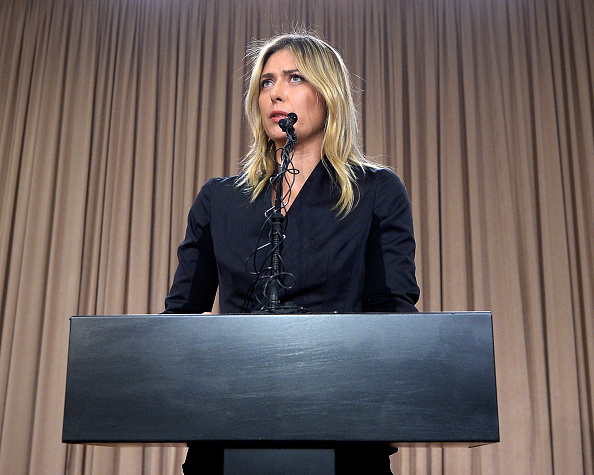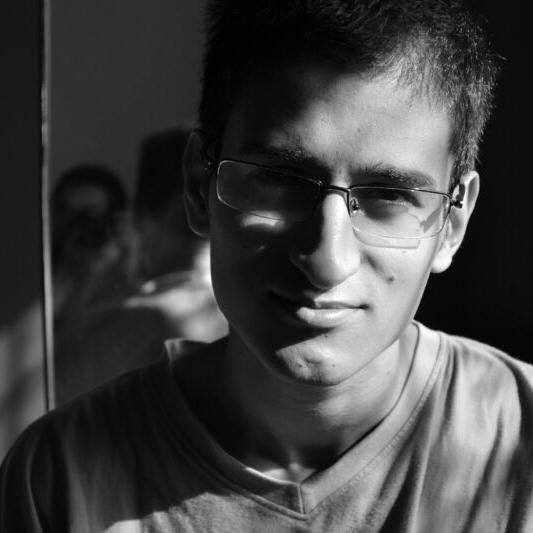Why this light slap on the wrists for Sharapova means a huge blow for tennis
On October 4, sitting in her multi-million dollar Florida mansion, a 29-year-old tennis star would have been awaiting the most important call of her career.

As she answered the phone, a smile would have crept across her famous face knowing that she had conned the world of tennis into letting her back onto the court 9 months early.
Maria Sharapova had been banned for two years after she was caught doping before the CAS stepped in with a reduced sentence. The Russian had been criticized by Andy Murray who said that the former had no "valid excuse" for using the banned

 © Getty
© GettyI do feel like if you're cheating … and gaining advantage on your opponents, then you obviously have to be punished for that.
Andy Murray
Sharapova earned a reprieve on sentence based on the fact that the substance had been banned only earlier in the year. My problem with the reduction of the ban arises from what she said in an interview on the Today Show. When asked if she would have the same endurance that she had(before the ban) as
"Look, I will look with my medical team for a substitute, for something that is legal and is permissible to take," Sharapova replied. That is where the problem lies. When Lance Armstrong was caught for blood transfusions, most of the cyclists were doing the same thing. That did not make it right then, it does not make it right now and in my book, it should be banned altogether.
This is not something that has come out of the blue in tennis. For a considerable number of years, experts have been advocating increasing the number of tests conducted, but have been completely ignored. Dr Donald Catlin, who was a long-time member of the IOC Medical Commission, and founded the UCLA Olympic Analytical Laboratory, has on multiple occasions mentioned tennis, as a sport, are not doing enough to stamp out doping completely.
"I made a statement a couple years ago that I thought tennis was not doing enough -- and tennis jumped all over me. But I am also quite sure that their testing is minimal, and I wouldn't trust them. Their testing was lackadaisical...doing something to appease." Catlin told ESPN in an interview.
In their research, ESPN concluded that tennis has been extremely lax on doping - the sheer testing numbers are much lower compared to other sports as are the number of culprits. According to the research, out of 985 tests, it was concluded that only one case violated the anti-doping rules. To put these numbers in perspective, athletics and cycling apprehend one in every 274 and 296 tests respectively.
One of the major findings in ESPN's report was that only one in 16 player samples is analyzed for Performance Enhancement Drugs(PED). Other major Olympic sports usually test for the same twice as often.
The widely used explanation for tennis not having enough "cheaters" by "doping deniers" is that it is not an endurance sport as it is a sport that depends more on skill rather than physical attributes, and they usually end up stating Federer as an example. This, however, could not be further from the facts. ESPN assembled a panel of experts that included sports scientists, academicians, and journalists to analyse the most demanding sport in the world. Endurance, strength, power, speed etc. were some of the parameters taken into account while tabulating the final result.

 © getty
© gettyTennis managed to finish at a very respectable seventh position with Boxing topping the charts. Cycling finished 13 places below the "non-endurance" sport while long distance running could only reach No. 40. So the argument that the sport is not as demanding as some of the others is simply and factually not true.
It's not just experts and fans who hate the idea of doping in the sport they love, a number of tennis players have also asked for more testing, but their request has also been denied. In 2012, when the Armstrong saga broke out, Roger Federer openly criticized the screening methods for doping in the tennis world.
We don't do a lot of blood testing during the year. I'm OK with having more of that. I just think it's important to have enough tests out there. I think it's key and vital that the sport stays clean. We have a good history in terms of that and we want to make sure that it stays that way.
Roger Federer
Former World Number 1 Andre Agassi lent his voice to the issue as well stating, "I know I got tested one year eight times blood, 20 times urine, three out-of-competition, unannounced at my front door. So I thought that was pretty aggressive, but I would have been fine with it had it been more. But I think less is a problem."
As many as 31 professional tennis players were surveyed by the ESPN under the promise of anonymity, 65 percent said that the there should be more drug tests and that they personally knew players who have used PEDs. They did, however, add that the number of players who used PED's was less than 10 percent of the total playing community.
Victor Conte, who founded the now-defunct Bay Area Laboratory Co-operative (BALCO) and has served four months in prison after the federal investigation that linked high-profile athletes, Barry Bonds being the biggest name on the list, to banned substances has said, "What I was vocal about at the end of my career was that there were certain things that they just didn't have the capacity to test for.
"They weren't testing for certain things that were the most important areas that people could get ahead, and I don't know if they're testing for those things now."
This is exactly the kind of cat-and-mouse game that the WADA needs to keep in mind when they make new laws because the dopers will always hold the upper hand by switching to substitutes. The reduction of Sharapova's ban will not discourage others from doing the same. A two-year ban, which is still lenient in my opinion, should have stood to prevent such instances from being repeated.
However, anyone who follows tennis regularly would not have been surprised by the CAS' verdict. In the past, Marin Cilic (Nikethamide; nine months cut to four months), Richard Gasquet (Cocaine; 12 months to NO ban), and Greg Rusedski (Nandrolone; NO ban) had their bans reduced, or removed, by the CAS after the players put in an appeal.

 ©
© The worst of the lot has to be Andre Agassi, who made a shocking revelation in his autobiography about failing a test in 1997 for the consumption of crystal meth. He lied to the ATP telling them that he had taken the drug accidentally. The ATP kept the test
Then, why do the ATF not hand out harsher punishments to the "bad apples”? The answer could be as simple as this - the ATP and WTA want to hold on to an image of the sport that has never been seriously tainted by a major drug scandal that they have worked so hard at it. By doing this, they have ensured that their annual sponsorship revenues in excess of $250 million, excluding the $1 billion-plus revenue being generated through sponsorship deals, continue to flow into their coffers. Keeping this in mind, it is not difficult to find a motive for these cover-ups.
The Sharapova scandal could have been a watershed moment for the sport that could have put the fear of God into the next generation of tennis superstars, but yet again the CAS has failed us - the lovers of the sport. Sharapova's return to the court would be a welcome sight for her fans, but the hype around her “victimization” will in fact end up helping the Russian's image grow even more.
If tennis wants to save itself from becoming the new cycling, there have to be some drastic changes in testing and more transparency. The offenders must be handed strident punishments and CAS needs to stop the mockery they end up making everytime by reducing or in some cases just waiving off suspensions.
Now play Cricket, Football, Tennis, Badminton and Kabaddi - all in one go.
Presenting Nostragamus, the first ever prediction game that covers all sports. Play Daily Sports challenge and win cash prizes daily!
Download the app for FREE and get Rs.20 joining BONUS. Join 30,000 other users who win cash by playing NostraGamus. Click here to download the app for FREE on android!
Now play Cricket, Football, Tennis, Badminton and Kabaddi - all in one go.
Presenting Nostragamus, the first ever prediction game that covers all sports. Play Daily Sports challenge and win cash prizes daily!
Download the app for FREE and get Rs.20 joining BONUS. Join 30,000 other users who win cash by playing NostraGamus. Click here to download the app for FREE on android!

Comments
Sign up or log in to your account to leave comments and reactions
0 Comments